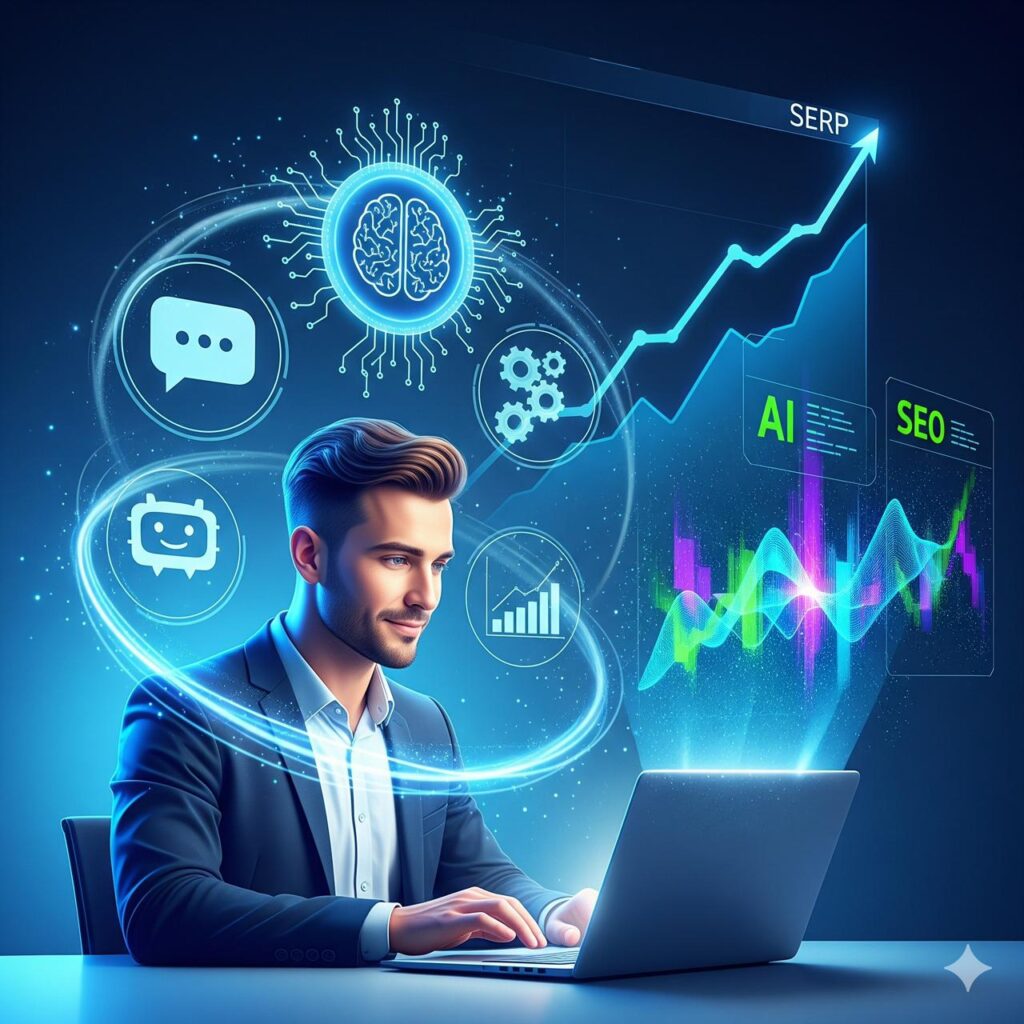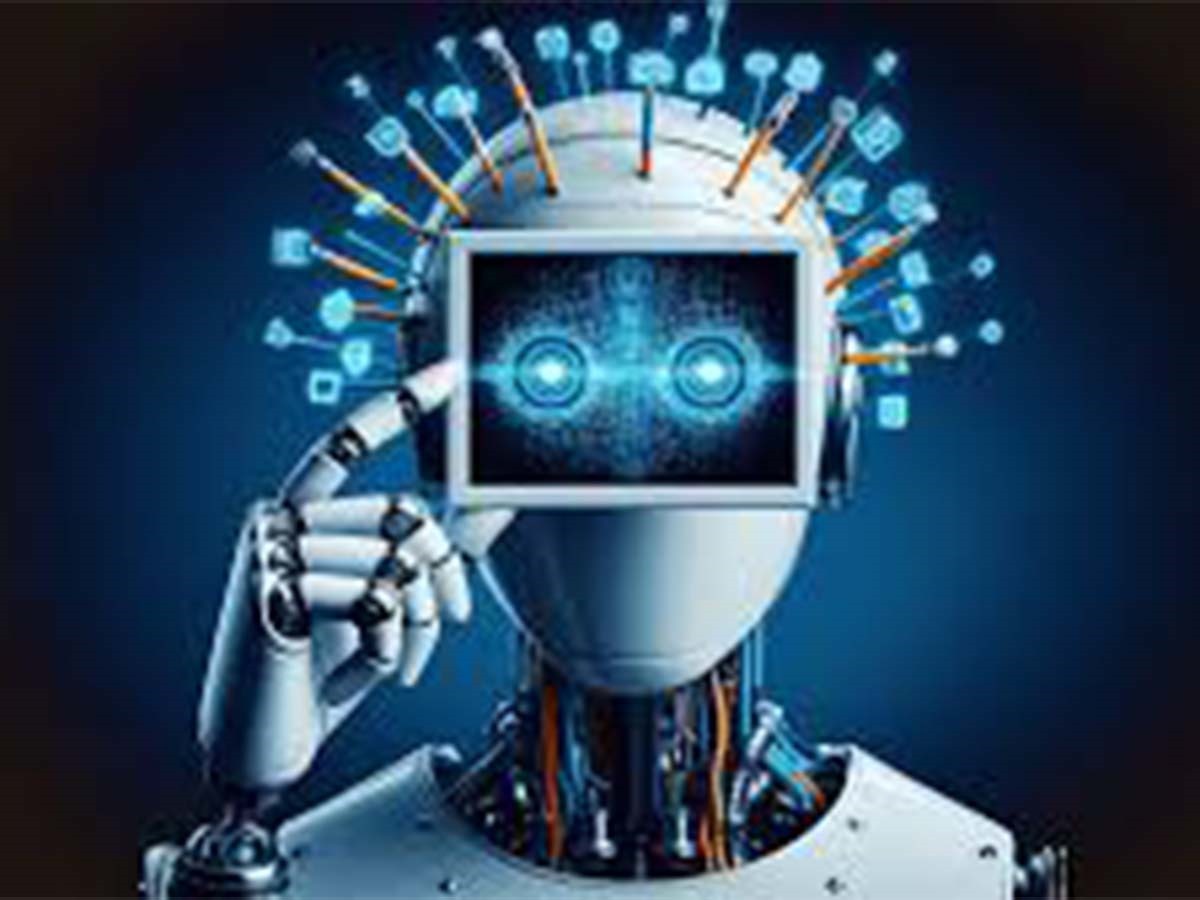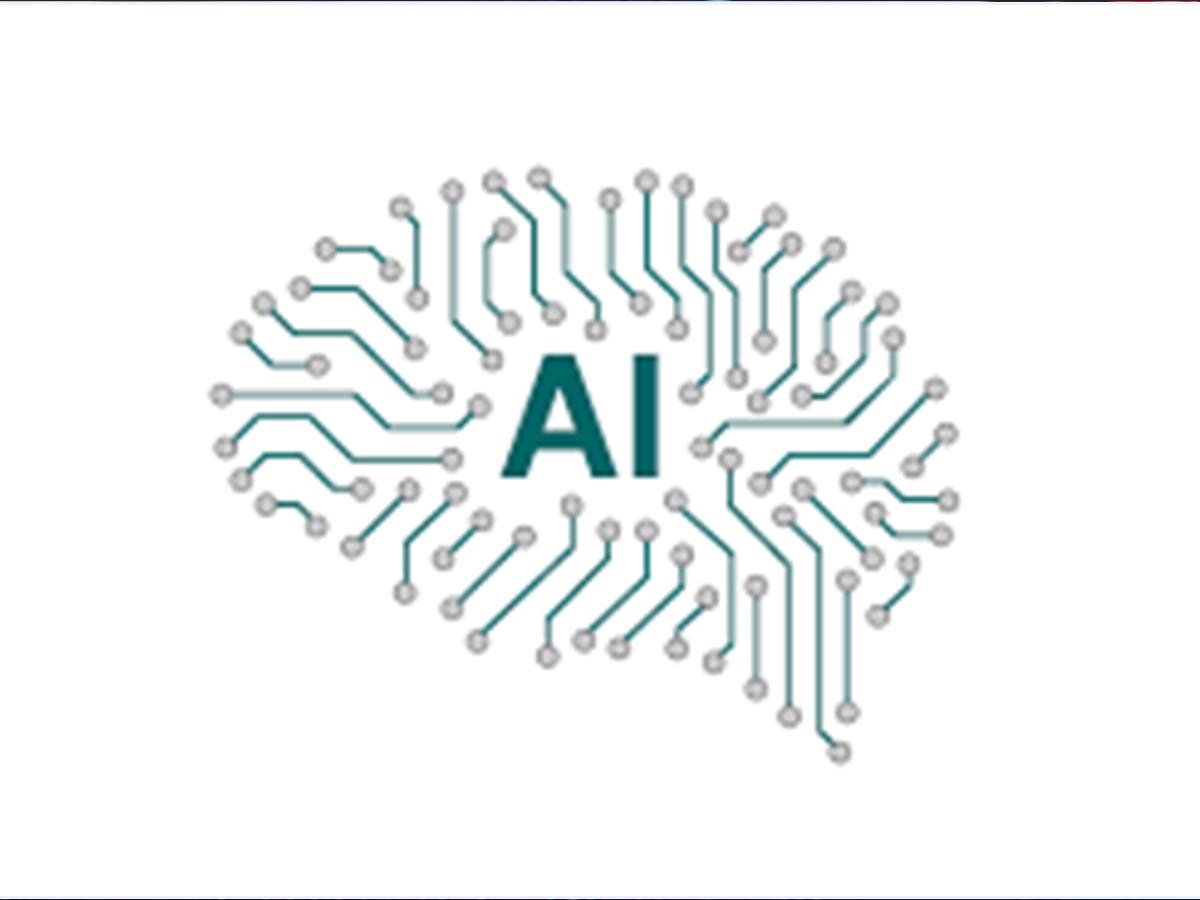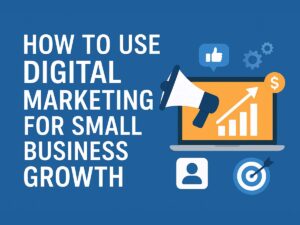How Artificial Intelligence is Transforming Business
Introduction
Artificial Intelligence (AI) is no longer a futuristic concept—it is the present. In 2025, Artificial Intelligence is transforming business across industries by improving efficiency, enhancing customer experiences, automating processes, and driving innovation. From small startups to global enterprises, businesses are leveraging AI technology to stay competitive in a fast-paced digital economy.
This article will explore how Artificial Intelligence is transforming business, the benefits of AI in different industries, practical AI applications, and the future of AI-powered business growth.

What is Artificial Intelligence in Business?
Artificial Intelligence refers to machines and computer systems capable of performing tasks that typically require human intelligence. In the business world, AI technology is applied to:
- Data analysis and decision-making
- Customer support automation
- Predictive analytics
- Marketing personalization
- Supply chain optimization
- Fraud detection
- Smart AI solutions for business growth
By using AI tools, companies can process massive amounts of data, identify patterns, and create strategies that lead to smarter decisions and better results.
Why Artificial Intelligence is Transforming Business
The main reasons AI is changing business in 2025 are:
- Efficiency and Automation – Businesses can save time and reduce costs by automating repetitive tasks.
- Data-Driven Insights – AI applications analyze data faster than humans, providing real-time insights.
- Personalization – Artificial Intelligence enhances customer experiences by tailoring products and services.
- Competitive Advantage – Companies using AI technology outperform competitors in innovation and growth.
- Scalability – AI-powered tools make it easier to expand globally without increasing costs dramatically.
Key Benefits of Artificial Intelligence in Business
1. Enhanced Productivity
AI tools streamline workflows, automate manual tasks, and free employees to focus on creative, strategic work.
2. Cost Savings
Businesses save money through automation, predictive maintenance, and efficient resource allocation.
3. Better Decision-Making
Artificial Intelligence applications analyze data to support smarter, data-driven business strategies.
4. Customer Satisfaction
Chatbots, virtual assistants, and personalized recommendations improve user experiences.
5. Risk Management
AI helps in fraud detection, cybersecurity, and compliance monitoring to minimize risks.
Artificial Intelligence Applications in Different Industries
1. AI in Marketing and Sales
- AI-powered chatbots provide instant customer support.
- AI applications personalize recommendations on e-commerce sites.
- Predictive analytics helps businesses target the right audience.
- Smart AI solutions improve conversion rates and ROI.
2. AI in Healthcare
- AI technology assists in diagnosing diseases earlier and more accurately.
- Virtual AI assistants provide patient support 24/7.
- AI-powered robotics aid in surgeries and patient care.
3. AI in Finance
- Fraud detection and risk analysis using AI algorithms.
- Automated trading powered by Artificial Intelligence.
- Customer support through AI chatbots in banking apps.
4. AI in Supply Chain and Logistics
- AI applications forecast demand and optimize inventory.
- AI-powered tools track shipments and reduce delays.
- Smart AI solutions make global logistics more efficient.
5. AI in Human Resources
- Resume screening and recruitment automation.
- Employee engagement through AI chatbots.
- Predictive analytics to forecast workforce needs.
6. AI in Customer Service
- Virtual assistants like ChatGPT provide real-time answers.
- AI applications reduce wait times and improve satisfaction.
- AI-powered CRM tools track and predict customer behavior.
How Small Businesses Use Artificial Intelligence
Artificial Intelligence is not limited to large corporations—small businesses are also embracing AI technology.
- AI-powered marketing tools help with social media campaigns.
- AI chatbots provide 24/7 support without hiring more staff.
- Smart AI solutions automate invoices, payments, and bookkeeping.
- AI applications optimize advertising budgets for better ROI.
With affordable AI tools available, small businesses in 2025 can scale operations just like big players.
Artificial Intelligence and the Future of Work
AI technology is reshaping the workplace:
- Routine tasks are automated, leading to more creative roles.
- Remote work tools powered by AI enhance collaboration.
- Continuous learning platforms use AI to personalize employee training.
- AI in business fosters innovation in product development and services.
While some fear job loss due to automation, AI is creating new roles in data science, AI management, and digital marketing.
Smart AI Solutions Driving Business Growth
Some of the most effective AI-powered tools businesses use today include:
- AI chatbots – Improve customer support.
- AI-driven CRMs – Enhance lead generation and customer retention.
- AI marketing platforms – Optimize campaigns with predictive analytics.
- AI accounting software – Automates bookkeeping and reporting.
- AI cybersecurity tools – Detect threats and safeguard businesses.
By integrating these AI applications, companies gain a competitive edge in their industries.
Artificial Intelligence Trends in Business 2025
- Generative AI for Content Creation
Businesses use AI to generate blogs, ads, videos, and designs. - AI-Powered Personalization
Hyper-personalized customer journeys improve engagement and loyalty. - AI in Cybersecurity
Smarter threat detection protects businesses from hackers and data leaks. - Voice and Conversational AI
AI voice assistants are becoming more advanced in customer service. - AI and IoT Integration
Smart AI solutions combined with IoT create connected, automated workplaces. - Ethical AI and Responsible Business Practices
Companies prioritize transparent, fair, and unbiased AI applications.
Challenges of Artificial Intelligence in Business
Despite its benefits, AI in business comes with challenges:
- High implementation cost for advanced AI technology.
- Data privacy concerns when collecting customer data.
- Workforce disruption due to automation.
- Ethical risks with biased algorithms.
- Complex integration with existing systems.
Businesses must balance AI adoption with ethical use, employee training, and customer trust.
The Future of Artificial Intelligence in Business
Artificial Intelligence is not just transforming business today—it will define the future of industries. In 2030 and beyond, we will see:
- AI-driven organizations with minimal human intervention in repetitive tasks.
- Smarter supply chains powered by AI and robotics.
- Hyper-personalized experiences across all digital platforms.
- AI-powered innovation in healthcare, education, and finance.
- Smarter AI solutions making global business more connected and efficient.
Conclusion
Artificial Intelligence is transforming business in ways we could only imagine a decade ago. In 2025, companies leveraging AI technology and smart AI solutions are outperforming competitors, improving customer satisfaction, and unlocking new opportunities for growth. From AI in marketing and sales to AI in healthcare and finance, every industry benefits from Artificial Intelligence applications.
The businesses that embrace AI-powered tools, focus on ethical AI use, and continuously innovate will thrive in the digital economy of the future. Artificial Intelligence is not just a tool—it is the foundation of modern business success.











1 comment